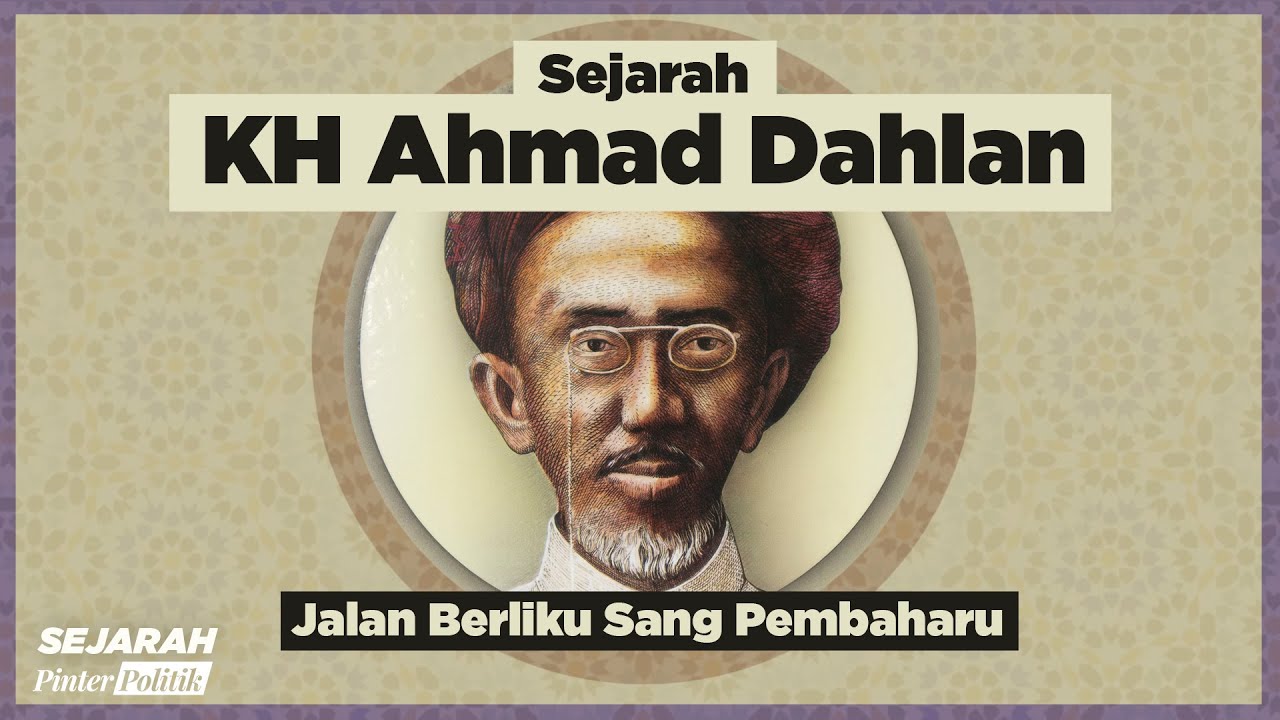Di Balik Pesan Sang Teladan
Summary
TLDRThe video highlights the inspiring life and legacy of Romo Mangun, a beloved figure who made significant contributions to education and social change in Indonesia. His unwavering support for marginalized communities, especially youth, is emphasized. Through personal anecdotes, the speaker reflects on Romo Mangun's mentorship and guidance, particularly in empowering young people and creating non-formal educational spaces. The video touches on themes of compassion, social justice, and community-building, showcasing how Romo Mangun’s philosophy of education continues to impact lives and transform society.
Takeaways
- 😀 Romo Mangun was a Catholic priest and social activist who dedicated his life to helping marginalized communities in Indonesia.
- 😀 He strongly believed in the power of education to empower individuals and transform communities, especially in underprivileged areas.
- 😀 Romo Mangun viewed children as 'Mahaguru' (great teachers) who could teach themselves and each other, emphasizing the importance of self-directed learning.
- 😀 He supported non-traditional educational methods that catered to the individual needs and interests of each child, fostering their unique potential.
- 😀 Romo Mangun was instrumental in community development efforts, particularly in areas where people were facing poverty, displacement, or social marginalization.
- 😀 He advocated for a more inclusive educational system that would bridge the gap between rural and urban education, helping to address social inequalities.
- 😀 The speaker highlights their personal connection to Romo Mangun, sharing how his mentorship and support shaped their own educational and social initiatives.
- 😀 Romo Mangun's commitment to social justice led him to resist government policies that would displace poor communities, standing up for their rights and well-being.
- 😀 The concept of 'Bina Manusia' (human development), 'Bina Sosial' (social development), and 'Bina Lingkungan' (environmental development) was central to the community-building efforts.
- 😀 Romo Mangun promoted forgiveness as a means of personal and communal growth, emphasizing that through forgiveness, individuals can find new life and freedom.
- 😀 His work transcended religious boundaries, as evidenced by his collaboration with people of different faiths, including Muslims, for the common good of the community.
Q & A
What role did Romo Mangun play in the community discussed in the transcript?
-Romo Mangun played a pivotal role in supporting the community, particularly in advocating for the rights of marginalized groups. He helped save a neighborhood from being displaced by government demolition and worked to improve the lives of local residents through education and social initiatives.
How did Romo Mangun contribute to the educational development of the speaker?
-Romo Mangun supported the speaker's educational development by regularly sending written materials, such as articles and manuscripts, to ensure they had access to knowledge. This encouragement helped the speaker broaden their understanding, despite limited access to media at the time.
What was the significance of the 'green belt' concept that Romo Mangun advocated for?
-The 'green belt' concept promoted by Romo Mangun involved creating sustainable, disaster-resilient communities along riverbanks. Instead of the government pushing for a large-scale eviction, Romo Mangun argued that well-organized, livable settlements could coexist with the environment, which led to the preservation of the community.
What challenges did the community face regarding their living conditions, and how were they addressed?
-The community initially lived in poor, makeshift conditions, with many residents living in homes made of cardboard along the riverbanks. This was exacerbated by poverty, but Romo Mangun, along with others, advocated for better social conditions, providing resources like education, housing, and community support to uplift them.
What unique approach to education does the speaker describe, and how does it differ from traditional schooling?
-The speaker describes an educational approach that emphasizes the individual needs and passions of each child, rather than focusing on standardized lessons. The model supports children in discovering their own talents and learning at their own pace, with facilitators guiding rather than dictating the process.
How does the speaker's school foster individual development among children?
-The speaker's school, named 'Sanggar Anak Alam', provides an environment where children can explore their unique interests and talents. The focus is on self-directed learning, where children are encouraged to find their passions and develop them, with teachers acting as facilitators rather than traditional instructors.
What are the three pillars of the community development program initiated by Romo Mangun?
-Romo Mangun's community development program was based on three key pillars: 'Bina Manusia' (human development), 'Bina Sosial' (social development), and 'Bina Lingkungan' (environmental development). These pillars aimed to improve the spiritual, social, and physical well-being of the residents.
How did Romo Mangun address the issue of children with disabilities in the community?
-Romo Mangun was particularly concerned about children with physical or mental disabilities, especially those from poor families. He believed that such children should not be segregated but integrated into society, ensuring they received the care, education, and support they needed.
How did the speaker manage to navigate religious differences within the community?
-The speaker emphasizes the importance of tolerance and respect for religious differences. Despite challenges, including accusations of religious proselytization, the speaker highlighted how their family embraced both Muslim and Christian faiths, fostering a supportive and harmonious environment for all.
What values did Romo Mangun emphasize in his teachings and actions?
-Romo Mangun emphasized the importance of compassion, community solidarity, and social justice. He encouraged people to look beyond their own interests and work towards improving the lives of others, especially those who were marginalized or oppressed.
Outlines

此内容仅限付费用户访问。 请升级后访问。
立即升级Mindmap

此内容仅限付费用户访问。 请升级后访问。
立即升级Keywords

此内容仅限付费用户访问。 请升级后访问。
立即升级Highlights

此内容仅限付费用户访问。 请升级后访问。
立即升级Transcripts

此内容仅限付费用户访问。 请升级后访问。
立即升级浏览更多相关视频

Sejarah KH Ahmad Dahlan: Jalan Berliku Sang Pembaharu

Biografi dan Peran Sunan Giri Dalam Penyebaran Agama Islam di Nusantara

ECHOES OF INDANG: Don Severino's Untold Story

Biografi Mohammad Hatta ✅: Sang Proklamator Cerdas Sekaligus Wakil Presiden yang Sederhana

Scrapbook Kelompok 9 XII TKJB Biografi BJ Habibie

Tak Kalah Keren dengan Kartini.!! Biografi dan Fakta Menarik Raden Dewi Sartika Pejuang Emansipasi
5.0 / 5 (0 votes)
